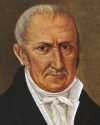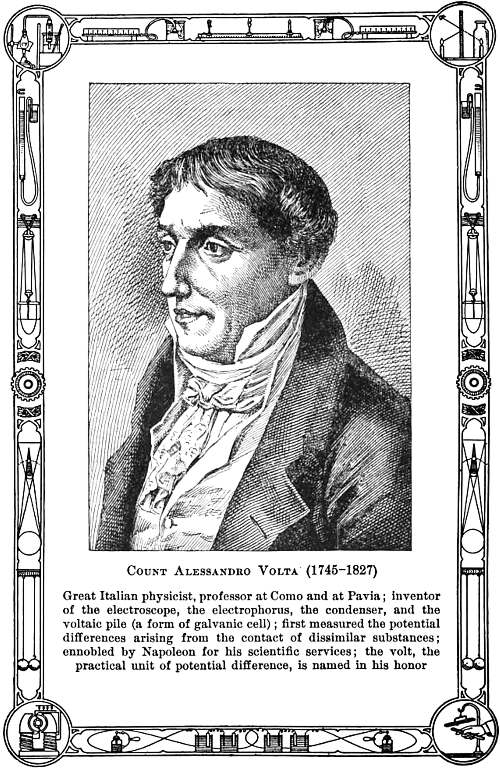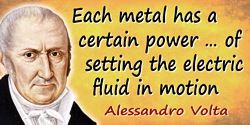 (source)
(source)
|
Count Alessandro Giuseppe Antonio Anastasio Volta
(18 Feb 1745 - 5 Mar 1827)
Italian physicist who invented the first battery, able to supply a sustained current of electricity.
|
Alessandro Volta
Illustration from Millikan's textbook, A First Course in Physics (1906, rev. 1913)
Before beginning his famous Nobel Prize-winning Oil Drop experiment, Robert Millikan co-authored a textbook with a colleague at the University of Chicago. It contained a number of illustrations, each one with a decorative border. (Perhaps that provided a more interesting appearance for the students while reading the textbook.)
A close look at the details within the border reveals a selections of diagrams and experiments which those students would no doubt become familiar. Sadly, there is no key in the textbook to these. So...
Challenge! How many can you recognize?
To make them easier to see, sections of the border can be seen in these enlargements.
From Robert Andrews Millikan, A First Course in Physics (1906, rev.1913), 234. (source)
See also:
- Science Quotes by Count Alessandro Giuseppe Antonio Anastasio Volta.
- 18 Feb - short biography, births, deaths and events on date of Volta's birth.
- Alessandro Volta - Enlarged Details of Illustration Border from Robert Millikan's textbook.
- Alessandro Volta - Monument in Pavia, Italy.
- Sketch of Alessandro Volta - biography and image from Popular Science (May 1892).
- Volta: Science and Culture in the Age of Enlightenment, by Giuliano Pancaldi. - book suggestion.
- Booklist for Alessandro Volta.






